With Bayern, PSG and Real Madrid among those forced to cope with significant injury problems, Goal looks at the second-string XIs each quarter-finalist can call upon
An injury-ravaged Bayern Munich were beaten convincingly by Porto in the first leg of their Champions League quarter-final, meaning Pep Guardiola must mastermind a remarkable comeback if the 2013 winners are to keep this season’s challenge alive.
At the same time in the French capital, Paris Saint-Germain – shorn of some key stars and forced to cope without captain Thiago Silva for over an hour – failed to get a grip on the game as they were brushed aside by Barcelona to leave them on the brink of exiting the tournament.
With holders Real Madrid having suffered key injuries in recent days and Porto facing suspension concerns, a number of sides must turn to their back-up options if they are to seal a place in the semi-finals. Here, Goal takes a look which quarter-finalists can claim to boast the strongest squads.
Don’t forget to have your say in our poll below!

Though they may be some way short of the financial clout of Real Madrid, Atletico have established a strong enough squad under Diego Simeone to challenge for both domestic glory and the Champions League in the past two seasons. Miguel Angel Moya, second choice to Jan Oblak of late, slots into goal in Atleti’s second XI, while exciting centre-back prospects Lucas Hernandez and Jose Maria Gimenez fill the sizeable slots vacated by Diego Godin and Miranda. Cristian Ansaldi and Jesus Gamez offer more experience at full-back.
In midfield, the experience of Tiago offsets the promising young talent of Saul Niguez, while veteran Cani and Mexico international Raul Jimenez are capable of filling in for Arda Turan and Koke in the wide roles. Down the centre, Raul Garcia – more recently used as an impact sub by Simeone – fills his customary attacking midfield position, behind Fernando Torres, who ploughs the lone furrow in place of Mario Mandzukic.
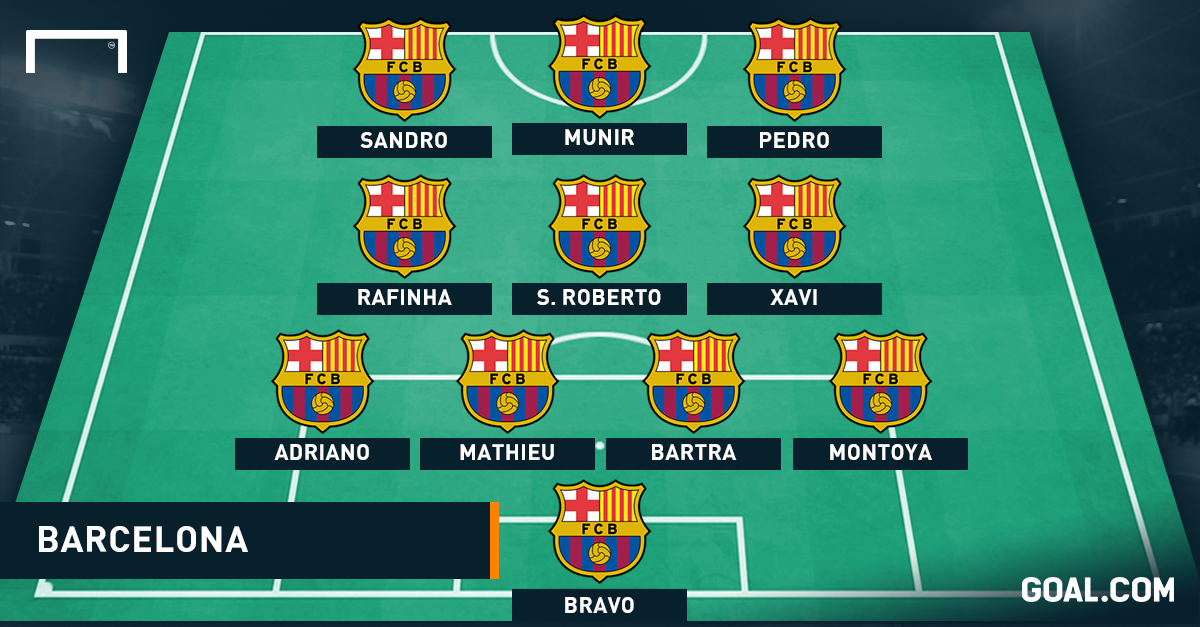
Luis Enrique has one of the easier tasks when it comes to filling the gaps in his 4-3-3 system. Claudio Bravo, as the preferred keeper in La Liga, is the obvious candidate to replace Champions League favourite Marc-Andre ter Stegen, while the back four are able to slot in seamlessly to their preferred roles – Jeremy Mathieu being second-choice behind Gerard Pique and Javier Mascherano – with Martin Montoya favoured ahead of Douglas at right-back.
Now 35, Xavi plays more of a back-up role to Andres Iniesta these days, but there is no question he would be straight in the side should a place become available. Rafinha Alcantara is another clear choice, while Sergi Roberto has improved significantly this term and would get the nod ahead of Sergi Samper.
Spain international Pedro brings the experience to the attacking trio, while youngsters Sandro Ramirez and Munir El Haddadi represent the best alternatives to Neymar and Luis Suarez. Adama Traore would be another option as a more dynamic central attacker.
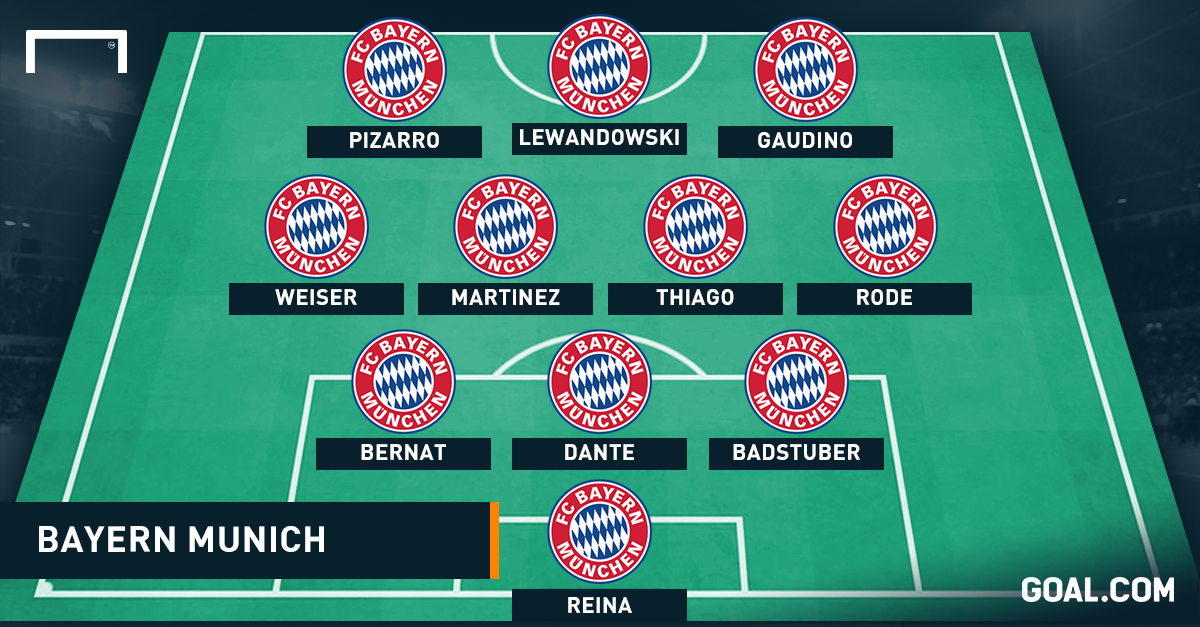
Bayern’s injury problems – and Pep Guardiola’s tactical tinkering – have been so persistent that nailing down a starting XI for the Bavarians has been tough for most of the season, so their back-up side is equally difficult to name with any certainty.
The only guarantee is Pepe Reina, who would replace Manuel Neuer in goal. Ahead of him, fit-again Holger Badstuber and the error-prone Dante are behind Jerome Boateng and Medhi Benatia in the pecking order, with the versatile Bernat still second-choice when David Alaba is fit.
In midfield, Thiago Alcantara’s return to fitness has been crucial of late, but he would still likely be a back-up if Guardiola had all options available. Equally, Javi Martinez – who said last month that his comeback from injury is imminent – would be unlikely to unseat Philipp Lahm or Xabi Alonso in the starting XI. Mitchell Weiser and Sebastian Rode have proven highly adaptable squad players this term and complete our central quartet.
Further forward, young Gianluca Gaudino offers a useful option in support of the main attackers, while veteran Claudio Pizarro still poses a goal threat. In the centre, Robert Lewandowski main seem a surprise choice given his vital contribution in recent weeks, but the Pole would find it hard to stay in the starting XI should Guardiola’s favoured front four of Arjen Robben, Franck Ribery, Thomas Muller and Mario Gotze all be available.
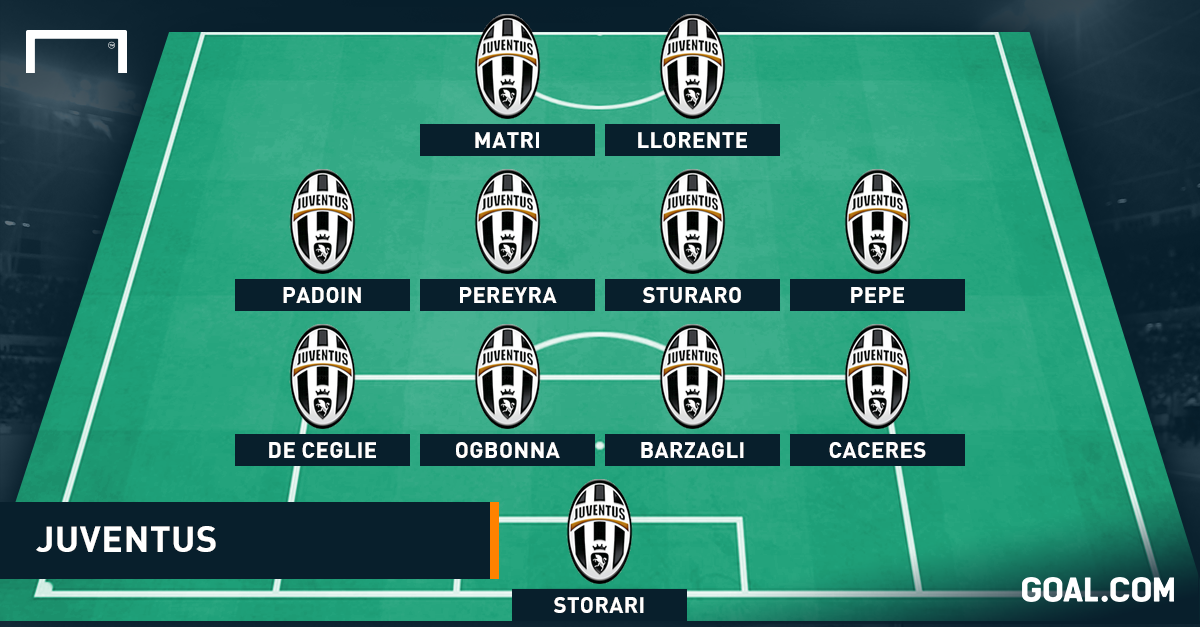
Paul Pogba is one of a handful of Juventus stars missing out on the second leg with Monaco, but Massimiliano Allegri boasts a versatile enough squad to fill any gaps in his favoured 4-3-1-2 system. Marco Storari replaces Gianluigi Buffon in goal, with Paolo De Ceglie slotting in at left-back and Angelo Ogbonna joining the fit-again Andrea Barzagli at centre-half. Martin Caceres, who expects to play some part before the season is out following ankle surgery, is an option to replace Stephan Lichsteiner should Juventus reach the last four.
Stefano Sturaro and Roberto Pereyra are rounded enough midfielders to replace Pogba and Arturo Vidal, with Simone Pepe and Simone Padoin experienced attacking options to link the midfield to the forward line. Up front, Fernando Llorente and Alessandro Matri slot straight in to replace Carlos Tevez and Alvaro Morata, though Kingsley Coman represents a valuable alternative in the front two or as a deeper No. 10.
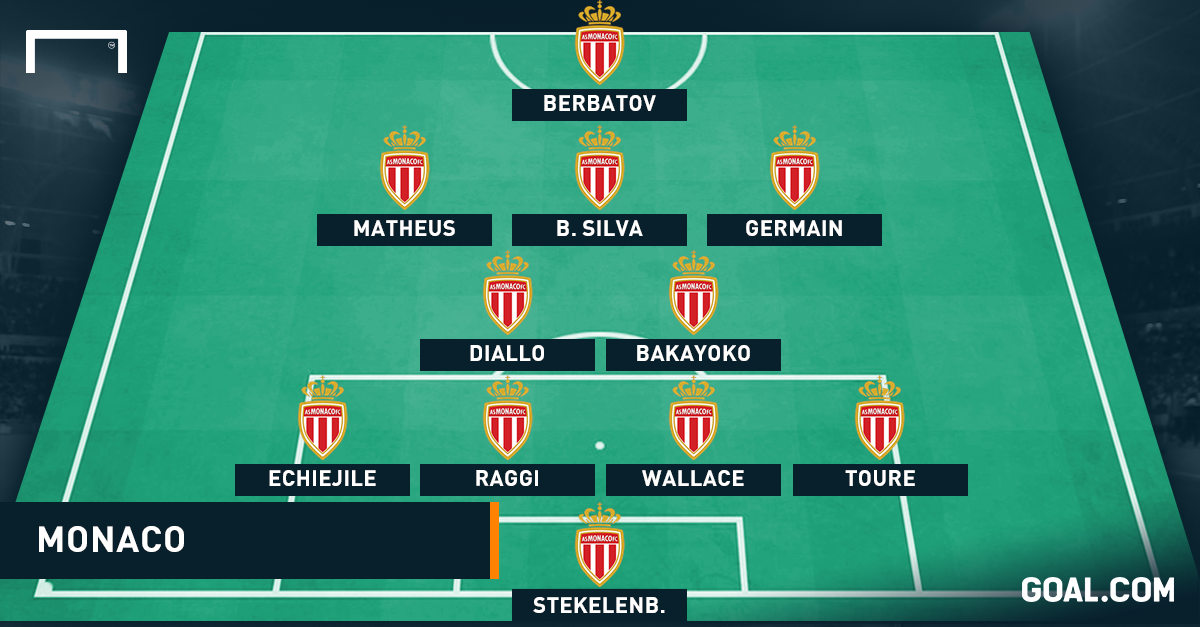
Monaco must turn to a number of inexperienced players to make up their second-string XI. Martin Stekelenburg is an able deputy to Danijel Subasic, but Wallace and Almamy Toure – at 20 and 18, respectively – represent a possible weakness at the right of defence. Andrea Raggi and Elderson Echiejile are more comfortable replacements in the back four.
Abdou Diallo and Tiemoue Bakayoko can both bring the athleticism of Geoffrey Kondogbia to the side, but are likewise highly inexperienced at this level. Further forward, Bernardo Silva shoulders the burden of creator-in-chief in the absence of Joao Moutinho, while Matheus Carvalho and Valere Germain replace Yannick Ferreira-Carrasco and Nabil Dirar. Up front, Anthony Martial has established himself as Leonardo Jardim’s first choice, so Dimitar Berbatov leads the back-up line – even though he has managed more Champions League apperances overall this term.
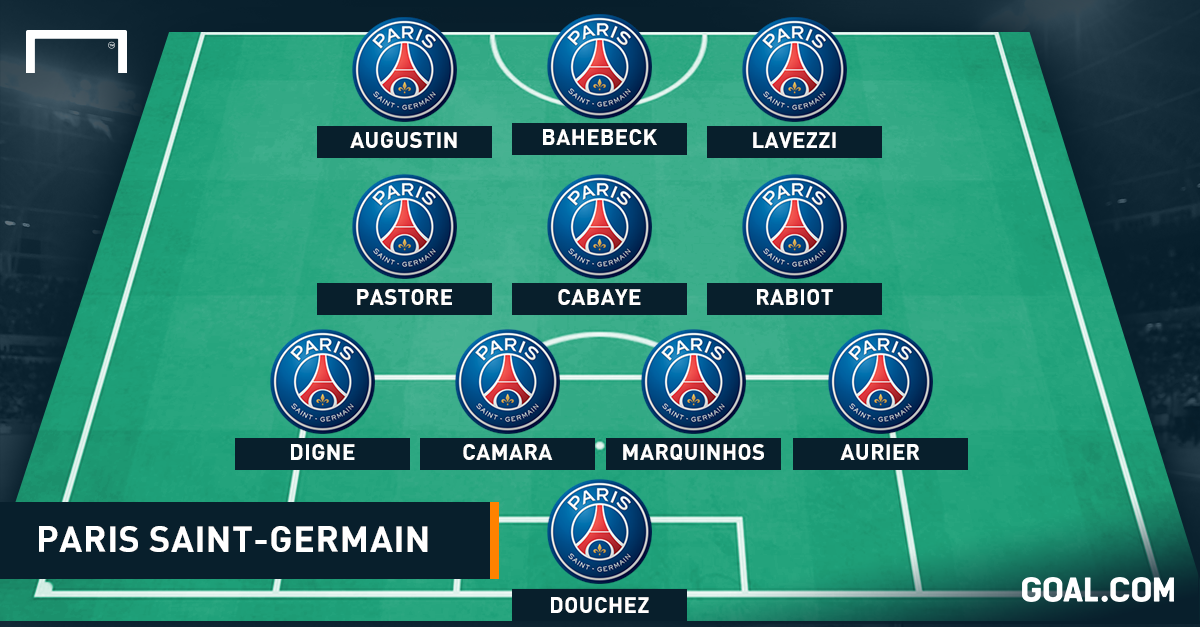
FFP sanctions mean PSG suffer more than most when injuries and suspensions strike, but they still boast a strong back-up side. The experience of Nicolas Douchez and Zoumana Camara perfectly offsets the youthful talent of Lucas Digne, Marquinhos and Serge Aurier, meaning the defence remains strong. Ahead of them, Adrien Rabiot and Yohan Cabaye are the clear choices in the three-man midfield, while Javier Pastore – though enjoying some excellent form in 2015 – is considered too inconsistent by Laurent Blanc to command a guaranteed starting spot ahead of Blaise Matuidi, Marco Verratti or Thiago Motta.
In attack, Ezequiel Lavezzi fills in a wide role comfortably, but PSG must otherwise turn to the inexperienced Jean-Christophe Bahebeck and Jean-Kevin Augustin, who are just 21 and 17 respectively. Though both remain promising talents, to fill the boots of Edinson Cavani and, specifically, Zlatan Ibrahimovic is a lot to ask.

Porto took full advantage of Bayern’s weakened side last week, but with Danilo and Alex Sandro banned and Jackson Martinez an injury concern, their own back-up players could be crucial in Munich. In their second-string XI, Helton takes the gloves, while the versatile Ricardo Pereira fills in as an attacking right-back, alongside Mexican Diego Reyes. Bruno Martins Indi has struggled to nail down a starting spot this term but is the obvious choice here, while Ivan Marcano shifts to left-back.
In midfield, Ruben Neves anchors the trio in the place of Casemiro, with Evandro and Colombia starlet Juan Quintero filling in for the graft and guile of Hector Herrera and Oliver Torres. Ahead of them, powerhouse Vincent Aboubakar is the obvious replacement for Jackson Martinez, with Hernani and Barcelona loanee Cristian Tello filling in the wide roles in place of Yacine Brahimi and Ricardo Quaresma.
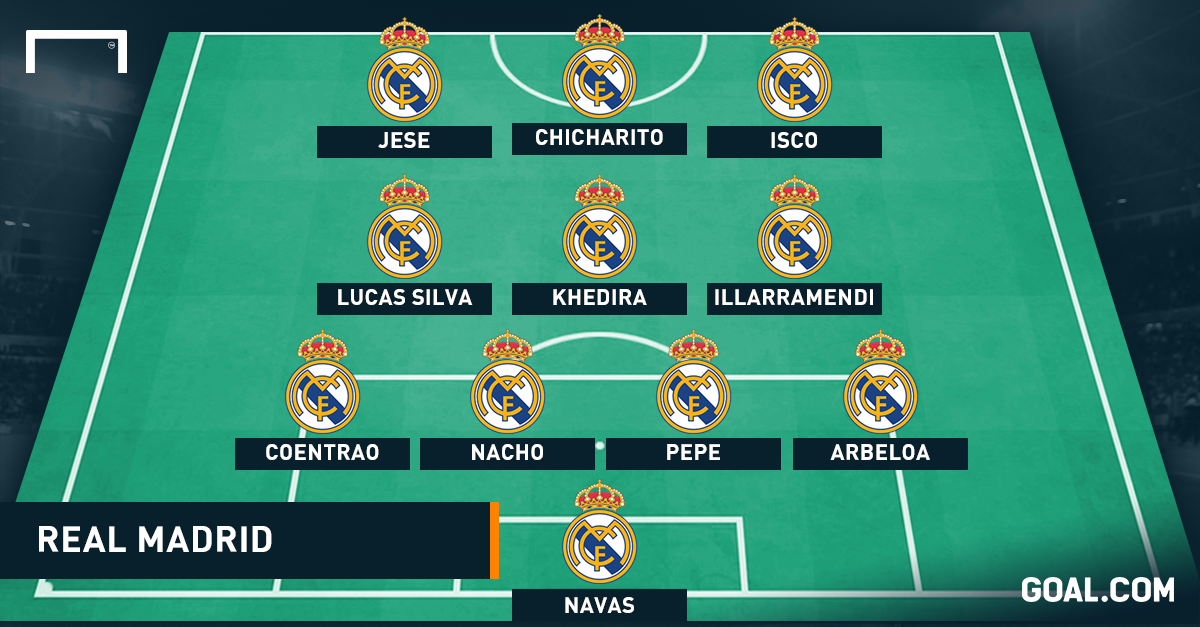
Carlo Ancelotti has been reluctant to tinker with his starting Xi this season, but injuries to Luka Modric and Gareth Bale could at least force his hand to turn to some of his back-up stars this week. Keylor Navas remains second favourite to Iker Casillas, while the back four boasts plenty of experience and would have few problems slotting in to the 4-3-3 if called upon, though Nacho at centre-back is arguably a weak link.
The midfield trio is far less creative than their first-choice counterparts, but Sami Khedria and Lucas Silva represent effective all-round players in the system to complement the passing game of Asier Illarramendi, who is yet to truly impress the Santiago Bernabeu faithful. In attack, meanwhile, Javier ‘Chicharito’ Hernandez is the one straightforward replacement available to Karim Benzema, while Jese Rodriguez is now back from long-term injury and could fill the place of Cristiano Ronaldo. Isco, who is behind James Rodriguez in the pecking order in midfield at present, could come into the side in place of Gareth Bale in a more advanced role.